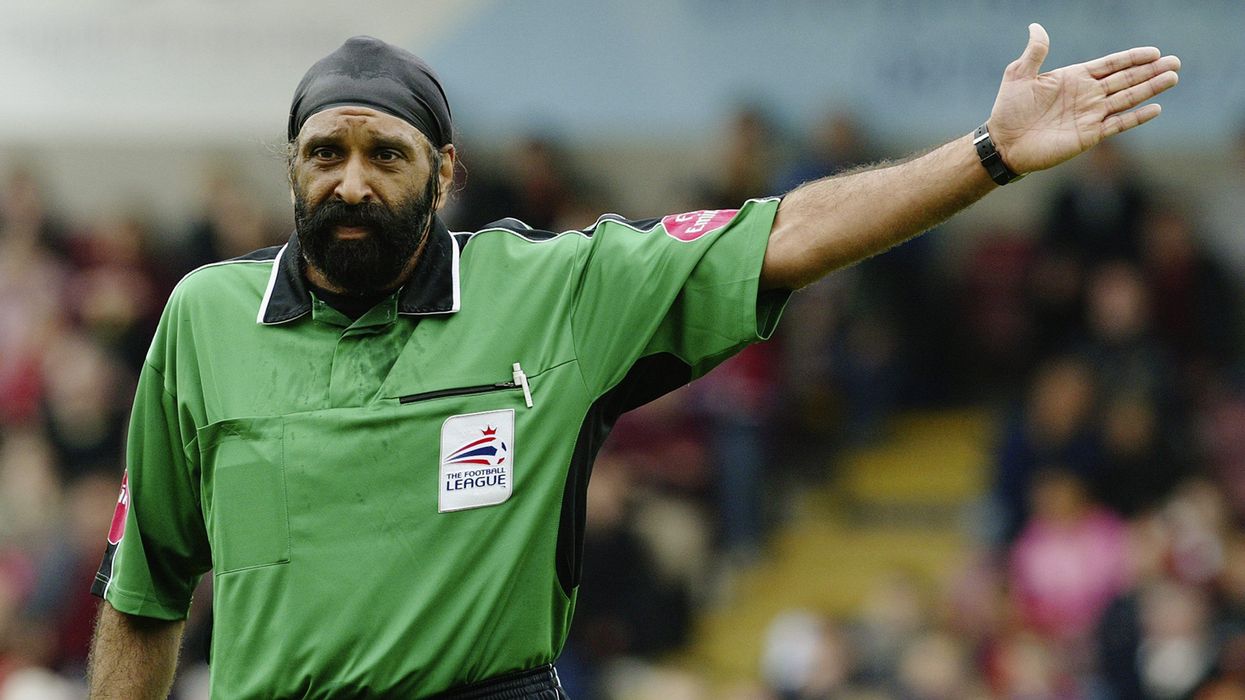HISTORY will be made in English Football League on Saturday (10) when sikh brothers Bhups and Sunny Singh Gill will become the first pair of British South Asians to officiate in the same Championship game.
Their father, Jarnail Singh, was the first turbaned sikh to have been a referee in the English Football League. Both brothers will be part of the officiating team for Saturday's match between Bristol City and Nottingham Forest.
Professional Game Match Officials Limited (PGMOL) - the body responsible for appointing match officials across the EFL - has confirmed Bhups as one of two assistant referees for the Championship match at Ashton Gate, with Sunny named fourth official.
Bhupinder, 36, a PE teacher started refereeing in his mid-teens and is also England's highest-ranked South Asian assistant referee. His brother, Sunny, a year to him is a prison officer at HMP Feltham and started refereeing at the age of 15. He is also the most senior British South Asian referee in the country.
The brothers from Berkshire have officiated in the Championship this season but never in the same game.
Moreover, the rare occasion of both the brothers being part of the same match, has been greeted by the Punjabi community.
Shadow secretary of State for International Development, Preet Kaur Gill, who is also Britain's first Sikh female Member of Parliament, told Sky Sports News: "I think it's (going to be) wonderful to see the two brothers refereeing and the likelihood of them refereeing a Championship game is brilliant."
Former Premier League match official Howard Webb, who refereed the 2010 World Cup final, told Sky Sports News that he is thrilled to see Bhups and Sunny's progress.
"I'm absolutely thrilled to see the progress that Sunny and Bhups have made in the game. I've had my eye on them for quite some time," said Webb.
"I go back with their dad for quite some time, we worked in the Football League together. And Jarnail Singh, in addition to being a really, really good referee, is just a wonderful guy. He was always a pleasure to work with.
"They (Bhups and Sunny) are athletic, they know how to manage people, all these skills that you need to be successful. If you don't have them, you don't survive in the professional game. These guys have done more than survive, they've excelled and I think will continue to do so," he added.




